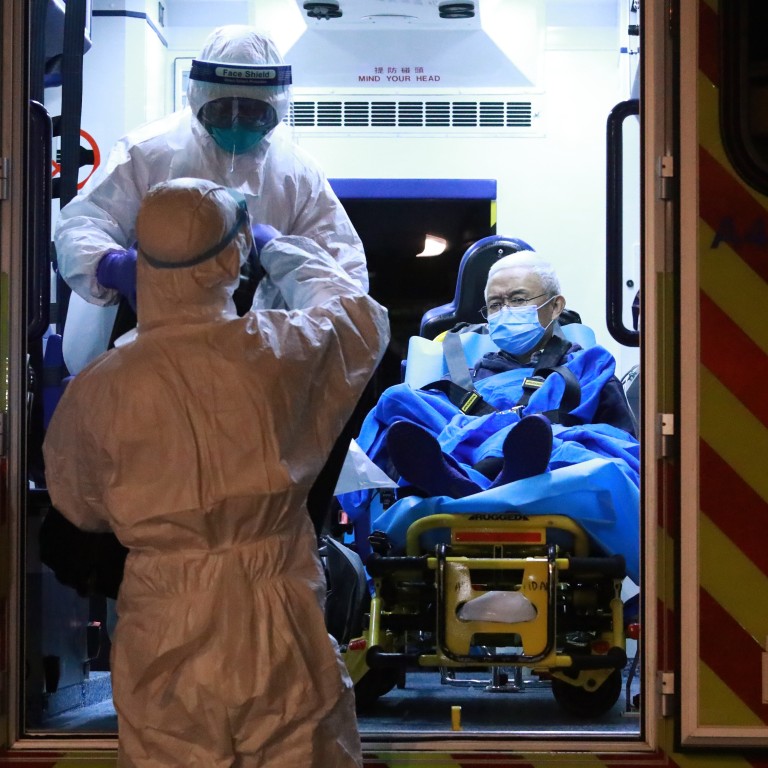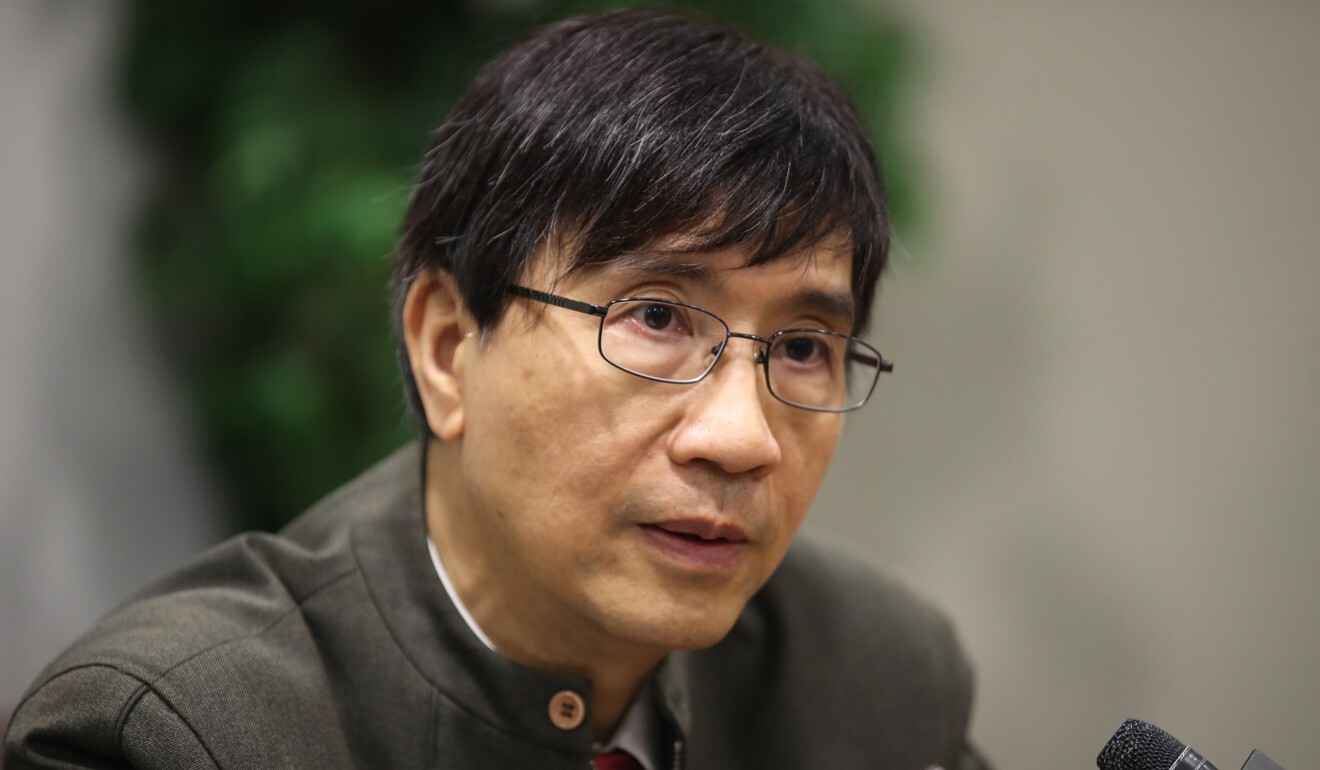
Coronavirus: as Covid-19 infections rise, strategy shift for Hong Kong’s hospital beds necessary, experts warn
- Even with addition of 400 beds this week, if daily tally of confirmed cases continues at current pace, city’s isolation wards will soon be full
- Young people with mild symptoms could be placed at quarantine facilities like Chun Yeung Estate in Fo Tan, government adviser says
With the daily tally of Covid-19 cases surging, Hong Kong is under pressure to shift its strategy for the city’s hospital beds by isolating asymptomatic patients and those with mild symptoms at quarantine facilities in the community, a top infectious disease expert and a senior hospital official have warned.
Up to 51 infected patients in the city were pending admission as of Sunday night including a 36-year-old patient who was confirmed on Friday, even as Hospital Authority chief executive Tony Ko Pat-sing said some 400 additional isolation beds would be put into service this week.
The warning came as the Legislative Council announced it would cancel its weekly meeting on Wednesday because of the pandemic. Imported cases, meanwhile, continue to fuel the city’s infections, with 40 of Sunday’s 59 new confirmed cases having a recent travel history. The total now stands at 641.

University of Hong Kong infectious diseases expert and government adviser Yuen Kwok-yung on Monday said cases could continue to surge following the returning of tens of thousands of Hong Kong residents from all parts of the world.
“Hong Kong is now facing a severe situation,” he told a radio programme. “Some citizens have let their guards down on keeping personal hygiene as the pandemic has entered the third month – the situation is becoming a little out of control.”
He said up to 100,000 people had returned to Hong Kong, mostly from Europe or the US, before the government’s 14-day mandatory quarantine measure came into effect on March 19. As most of them were not tested for the virus, many transmission chains could have already appeared.
Yuen suggested if the daily surge continues, coronavirus patients with mild or no symptoms could be sent to quarantine facilities to reduce the pressure on the health care system.
“For those infected young people who have only mild symptoms, such as having only a sore throat or runny nose without any fever, they could be placed in quarantine facilities like Chun Yeung Estate [in Fo Tan],” Yuen said. “They won’t need treatment by medical workers. They can even return home for further self-quarantine after their viral loads are lowered.”
He added that a patient usually develops antibodies about seven to 10 days after being infected. If a patient has no symptoms and a low viral load, he believes the risk of transmission is small.
“If we had unlimited resources, of course the best thing to do is to isolate all patients [in hospitals]. But we do not have unlimited resources, that’s why we need to find other ways forward,” Yuen said, adding a balance should be struck that acknowledges the city’s limited resources.
If we had unlimited resources, of course the best thing to do is to isolate all patients [in hospitals]. But we do not have unlimited resources
The Hospital Authority’s Tony Ko said if cases continued to surge by dozens per day, the health care system could face huge pressure in providing isolation beds despite the addition of 400 isolation beds at Hong Kong hospitals this week.
As of Sunday, the occupancy rate of the city’s 1,012 isolation beds and 534 wards stood at 62 per cent and 74 per cent, respectively. The Hospital Authority has earlier conceded that some patients have experienced longer waits before being admitted to hospitals.
“Depending on the development of the pandemic. If it develops stably [in Hong Kong], we should still be able to handle that. But if infected cases surge in the rate like in the US or in Europe, we might have to consider altering our strategies,” Ko told the same radio programme.
“Those patients whose conditions are mild or who have recovered more rapidly might be discharged from hospitals and be quarantined in the community,” he said.
Ko added that health authorities would continue to look into adding more isolation beds in hospitals but warned the move might not be sustainable, as new isolation units had to be converted from ordinary wards.
“Our resources should be reserved for the more severe Covid-19 cases,” he said. “If there are up to 50 or 60 new cases every day, our isolation beds would be quickly filled up … By merely adding beds in hospitals, that would not be a sustainable measure.”
Another health expert at HKU, leading microbiologist Ho Pak-leung, also agreed patients with mild symptoms or asymptomatic could be discharged and be moved to quarantine facilities, but said they should not return home until testing negative for the virus.
“Patients who still have their stool, sputum or other samples test positive should not be allowed to return home … as they could still infect others [living there],” Ho said.
“Some people who should be under mandatory home quarantine have previously flouted the rules by going out onto the streets. If patients who are still testing positive can return home, who knows if a similar situation could occur?”
Ho also urged the government to legislate a mandatory requirement for everyone to wear masks to prevent the disease from further spreading.

